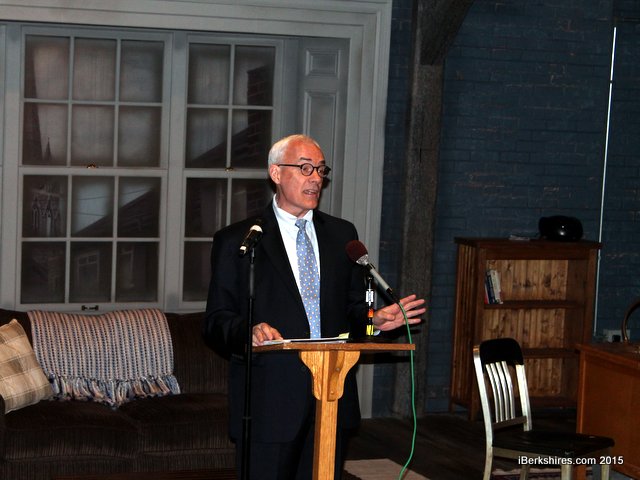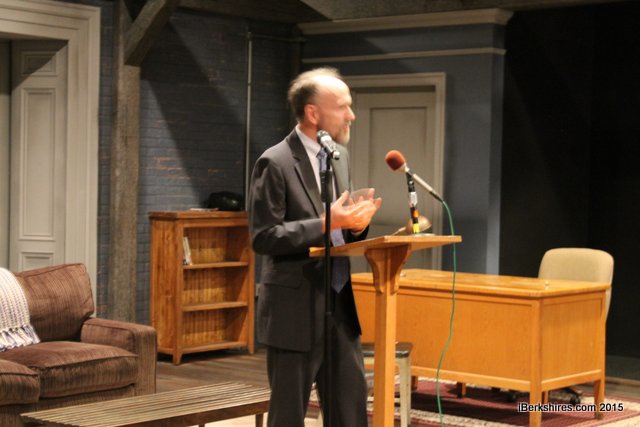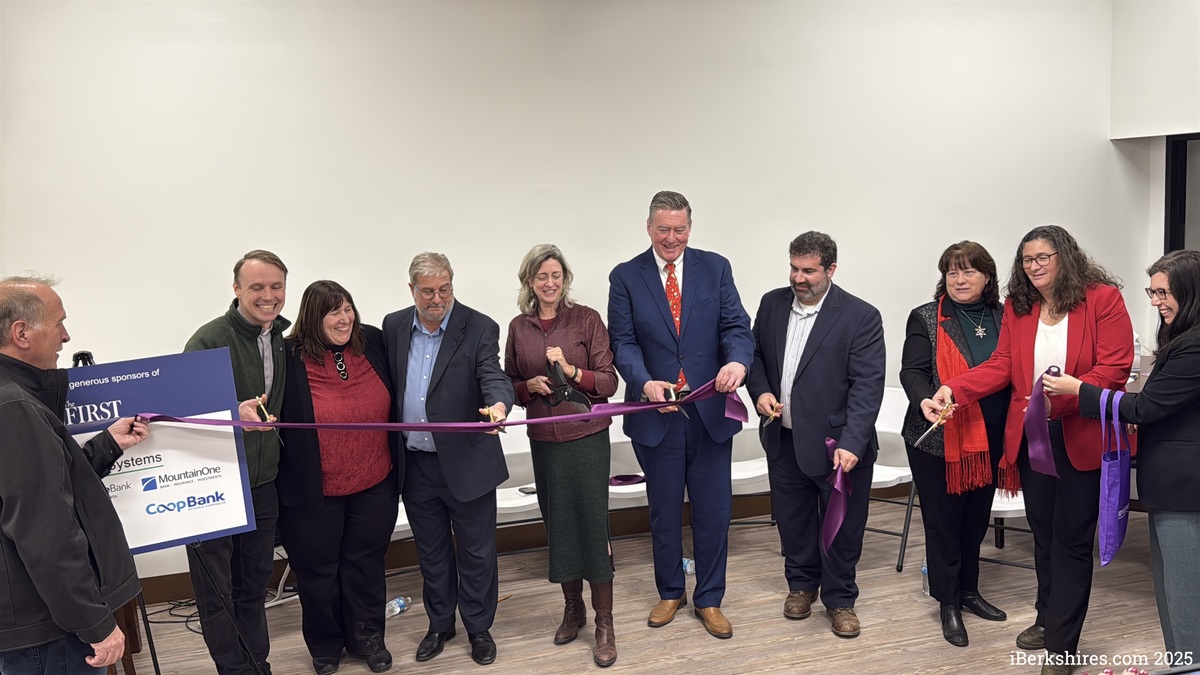Report: Local Nonprofits Generate $2.4 Billion In Economic Activity
|

Stephen Sheppard updated the study he did in both 2009 and 2011 on the nonprofit sector of the Berkshires' economy.
|
PITTSFIELD, Mass. — Each year Barrington Stage Company spends a quarter of a million dollars on housing for performers and artists.
The organization spends $1 million on educational programming for area youth. And recently, BSC invested more than $7 million on its facilities and renovations.
Those funds go directly to local landlords, contractors and individuals - stimulating the local economy. And that is on top of attracting visitors to the city's downtown - visitors who then eat at local restaurants and stay at local hotels.
The company is just one of hundreds of nonprofit organizations operating in the Berkshires. In the last decade, those nonprofits as a whole have weathered the recession and are now leading the way to recovery,
according to a study released on Tuesday.
"In that period, in this company, which is one of the fastest-growing nonprofit arts and culture organizations in the county, our budget has grown by probably 35 percent. We are now at $3.8 million a year company," Barrington Stage's Managing Director Tristan Wilson said on Tuesday when hosting the Berkshire Chamber of Commerce in releasing the report.
The report done by C3D - a collaboration of Williams College and Massachusetts Museum of Contemporary Art - updates a 2011 study performed by Stephen Sheppard, a professor of economics and the director of the organization. The update was aimed to see how the nonprofit sectors recovered from the recession.
"This has been a time of great challenge. The level of economic activity here in Berkshire County really peaked, adjusting for inflation, in 2004 or 2005 and slipped. We really entered recession here ahead of the rest of the economy," Sheppard said in revealing the updated study. "The entire country hit the recession in 2007 and then with a real wham in 2008, early 2009. We entered that recession more in 2006."
As the history of the Berkshires' economy goes, the county started with an agricultural and timber base and transitioned into manufacturing in the 19th century. The light manufacturing turned the local economy into one focused on making and exporting products elsewhere.
"That started to hit a crisis in the mid-20th century. As the economy globalized and greater competition was faced, businesses started to face challenges, and over a several-decade period, more and more of the local manufacturing really hit a crisis point," Sheppard said.
The large manufacturing companies left, and "the economy is evolving now to work out an alternative for itself, an alternative that is going to involve high skilled and high valued manufacturing but also involved the ability to create and produce experiences, the quality of life, everything from health care to theater that is different in nature," Sheppard said.
"Instead of putting products on a train and shipping them out, we are bringing people here to this beautiful region of the country," he said.
Since the recession hit, there have only be "modest" increases in 2009 and then stayed somewhat level, Sheppard said.
|

Chairman of the Berkshire Nonprofit Network Jim Kolesar introduced Sheppard at Tuesday morning's release.
|
"We currently have a 14 percent decline from our output in previous peaks. It's been a real struggle. It's been a real challenging time," Sheppard said.
"But I am happy to report that the nonprofit sector in Berkshire County has been part of what is a more buoyant part of our economy and is helping to bring the economy back."
The nonprofit sector of the economy had kept things from getting a whole lot worse, he said. Some $2.4 billion worse.
According to the most recent data Sheppard could get his hands on, the nonprofit sector contributes $2.4 billion worth of economic activity every year.
"That's a huge percentage of the local economy. The local economic impact of the nonprofit sector is reasonably thought of being $2.4 billion out of a $5.6 billion local economy," Sheppard said.
Local nonprofits spend about $1.4 billion each year, which includes the salaries for more than 27,000 jobs in an array of fields from education to health care to arts and culture. That accounts for a third of the county's workforce. Sheppard says more than $100 million is given to state and local coffers because of nonprofits' impact.
The nonprofit sector is outpacing the grown of the for-profit sector, but Sheppard said that shouldn't cause alarm. The for-profit sector will likely be following right behind it. The nonprofit's work has helped keep the entire economy from further collapsing during the recession, he said.
"In terms of revenue, the local nonprofit sector has come up to essentially the previous peak of the economy. Although, the whole economy hasn't," Sheppard said.
State Rep. Tricia Farley-Bouvier said the nonprofit sectors provide community services - which is why they are granted such a distinction - and improve the quality of life for the area. She said having good community services to improve the quality of life makes recruiting new businesses easier. That nonprofits are growing the economy and attracting more people the area is a good sign for things to come, she said.
"We know in recruitment that we need to provide a great quality of life," she said. "The nonprofits have recovered and that means the for-profits are on their way toward recovery, too."
Sheppard cited growth in the arts and culture, where the Berkshires have more per capita than most places in the country. Sheppard said only Washington, D.C.'s arts and cultural economic production is higher per capita.
"Berkshire County remains a national leader in terms of arts and cultural production per capita," Sheppard said.
Those sectors are attracting more and more visitors to the area, which leads to more and more money being spent at local businesses. Sheppard said that is a strength of the Berkshire economy as it reinvents itself.
Tags: creative economy, cultural economy, economic report, nonprofits,


















